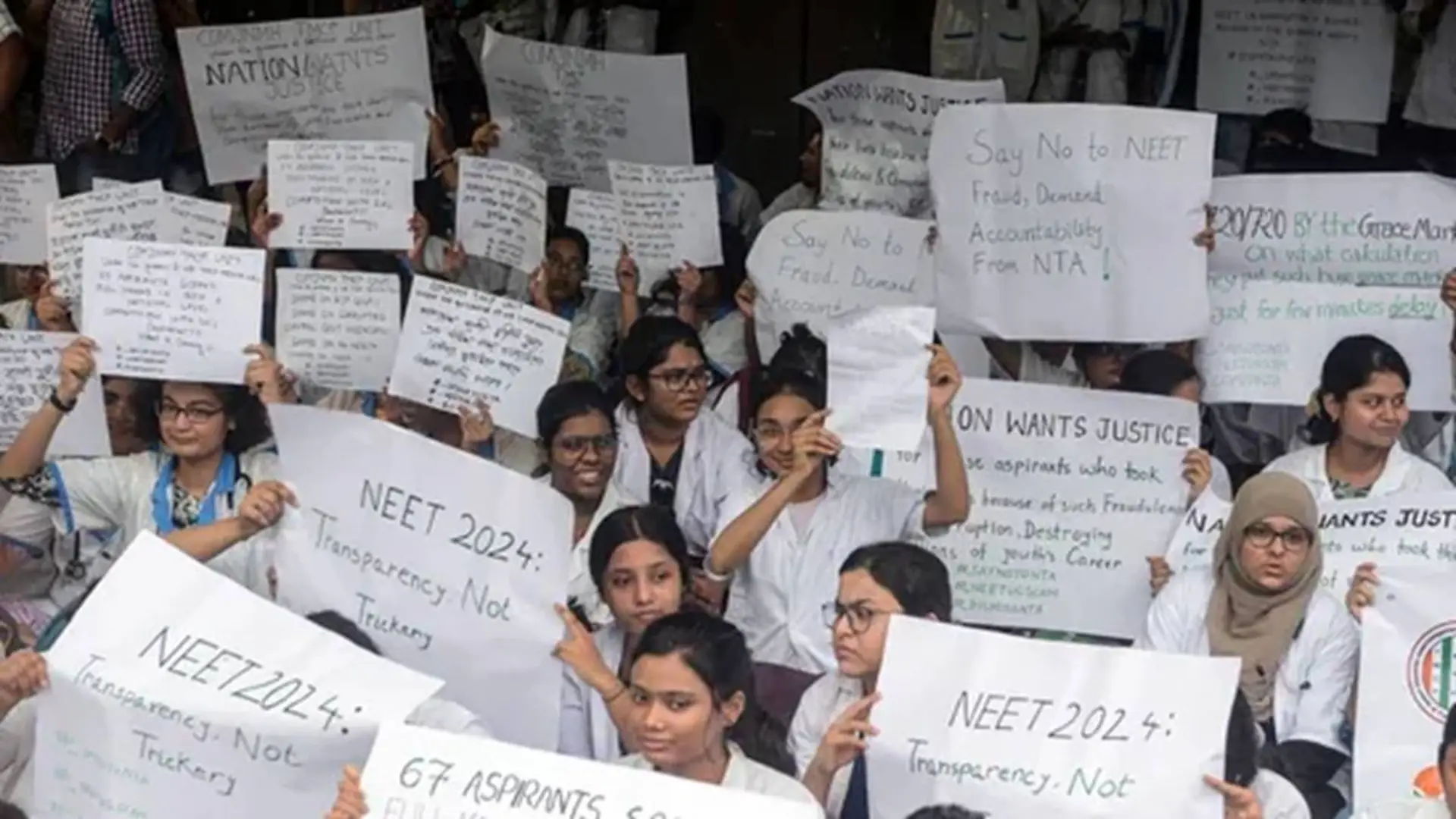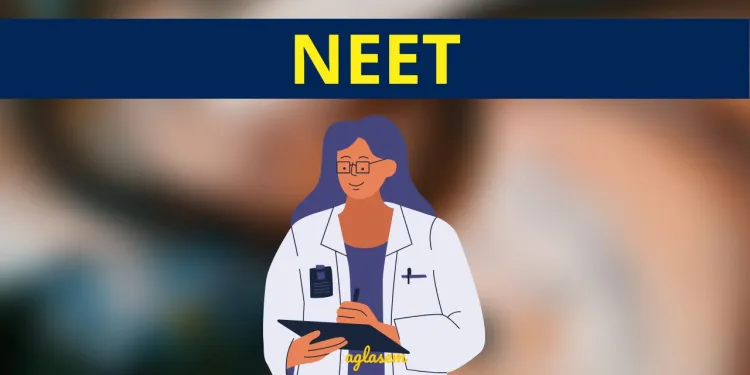NEET Paper Theft Case : The NEET (National Eligibility cum Entrance Test) paper theft case is a significant and troubling chapter in the history of educational integrity in India. The NEET exam serves as a critical gateway for aspiring medical professionals, allowing students to secure admission to various medical colleges across the country. The examination is held annually and is pivotal in determining the future of thousands of hopeful candidates. However, the integrity of this vital examination was compromised in an incident that raised serious concerns regarding security and transparency.
The timeline of events surrounding the NEET paper theft began in late 2022 when reports emerged about alleged irregularities in the examination process. Initial investigations were launched by various education authorities, leading to the establishment of a dedicated task force to assess the severity of the situation. As the probe progressed, authorities uncovered a well-coordinated scheme involving key players, including unscrupulous exam facilitators and intermediary agents who were allegedly operating within the educational framework.
The case began to unfold dramatically as numerous arrests were made, revealing a network of conspirators who had orchestrated a sophisticated plan to leak examination papers. These developments brought to light the weaknesses within the oversight mechanisms of the examination process. Moreover, the involvement of some education officials in this scandal introduced a layer of complexity, leading to widespread public outrage and calls for reform.
The significance of the NEET exam extends beyond individual aspirations; it is emblematic of the larger issues plaguing India’s educational system. The integrity of such examinations is crucial, as they not only influence the quality of medical professionals entering the field but also shape public trust in educational institutions. As the case has progressed to the filing of the fifth chargesheet by the Central Bureau of Investigation (CBI), it has become evident that addressing these challenges is imperative to restore faith in the examination system and ensure fairness for all candidates.
Details of the CBI’s Fifth Chargesheet : NEET Paper Theft Case
The fifth chargesheet filed by the Central Bureau of Investigation (CBI) in relation to the NEET paper theft case has unveiled critical allegations and revelations. Among the findings, the CBI has implicated several key individuals believed to have been involved in orchestrating the conspiracy. This extensive examination of the evidence points to a well-coordinated effort to illegally acquire and distribute the examination paper prior to the NEET, thereby compromising the integrity of the examination process.
The chargesheet identifies prominent individuals involved in this intricate network, including those who allegedly acted as intermediaries between the paper thieves and aspiring medical students seeking unfair advantages. The roles of these implicated individuals vary, with some being accused of direct involvement in the theft, while others reportedly facilitated the operation by providing logistical support or financial backing.
The CBI’s submission highlights a range of evidence that substantiates these allegations. This evidence encompasses digital communications, financial transactions, and witness testimonies that correlate to the planning and execution of the paper theft. In addition to the reaffirmation of previously cited suspects, the investigation has also brought forth new names, expanding the list of those under scrutiny. These developments suggest a broader conspiracy than initially perceived, which has raised further concerns regarding the examination system’s vulnerability to malpractice.
Moreover, the CBI has initiated additional actions based on these revelations, including the issuance of summons to several suspects for questioning. The agency continues to expand the inquiry, aiming to dismantle the entire operation significantly. The comprehensive details within the chargesheet serve not only to inform the public but also to emphasize the CBI’s commitment to ensuring accountability in this serious legal matter, reinforcing the integrity of the educational evaluation system.
Reactions from Stakeholders : NEET Paper Theft Case
The release of the Central Bureau of Investigation’s (CBI) fifth chargesheet concerning the NEET paper theft case has elicited a wave of reactions from a diverse array of stakeholders, including students, parents, educational institutions, and government officials. The nature of these responses has ranged widely, reflecting the significant impact of the case on public sentiment surrounding the National Eligibility cum Entrance Test (NEET).
Students express a mixture of anger and frustration, fearing that such a serious breach in the examination’s integrity undermines their efforts and the credibility of the NEET system. Many aspiring medical professionals stress that this incident leaves them questioning the fairness of their competition, as the integrity of examinations plays a crucial role in shaping their futures. Social media platforms have become outlets for these concerns, with posts portraying a spectrum of emotions from apprehension to calls for greater accountability in the educational system.
Parents, on the other hand, have voiced their distress over the potential ramifications of this case on their children’s academic prospects. Many express support for the CBI’s investigations, hoping that stringent measures will deter future malpractices. They often call for stricter regulations and more robust safeguarding mechanisms by the National Testing Agency (NTA) to restore trust in the examination process. Their concerns speak to the larger implications of this scandal—not only on immediate examination outcomes but also on the overarching reputation of the education system.
Educational institutions have reiterated their commitment to maintaining standards and have urged the authorities to enhance security protocols during examinations. Meanwhile, government officials have publicly supported the CBI efforts, acknowledging the necessity for transparency and justice in restoring faith in the NEET examination system. Academic bodies have similarly called for collaborative measures to prevent such incidents in the future, emphasizing the need for a unified approach to fortifying the integrity of assessments within the educational landscape.
Implications for the Future of NEET and Exam Security
The NEET paper theft case has cast a significant shadow over the integrity of standardized examinations in India, prompting a critical examination of the future of the NEET examination and broader educational processes. The recent issuance of the fifth chargesheet by the Central Bureau of Investigation (CBI) not only underscores the seriousness of the situation but also raises urgent questions about the efficacy of current exam security measures. Educators, policymakers, and law enforcement officials must collectively address these issues to restore confidence in the examination system.
One potential implication of this case is the urgent need for enhanced security protocols during exam administration. Experts advocate for the adoption of advanced technological solutions, such as biometric verification and encrypted examination papers, to protect the integrity of exams like NEET. Implementing such measures could deter potential acts of malpractice and maintain the examination’s credibility. Furthermore, stringent background checks on individuals involved in the exam process, including invigilators and administrative staff, may prove critical in identifying and mitigating risks associated with insider threats.
Beyond immediate security measures, a comprehensive reform in examination practices may be warranted. This includes exploring alternative methods of assessment that reduce the reliance on a single high-stakes test, thereby lessening the pressure on candidates and minimizing opportunities for corruption. Implementing continuous assessment models or introducing technology-driven assessments can diversify evaluation approaches and enhance fairness in the educational landscape.
Discussions surrounding the NEET paper theft case reveal the importance of collaboration among educational institutions, regulatory bodies, and law enforcement. By fostering a cooperative environment, stakeholders can work together to formulate policies and practices that address vulnerabilities and promote transparency. Achieving this goal will not only safeguard the integrity of NEET but also establish a robust framework for exam security that can serve as a model for other examinations across the country.





